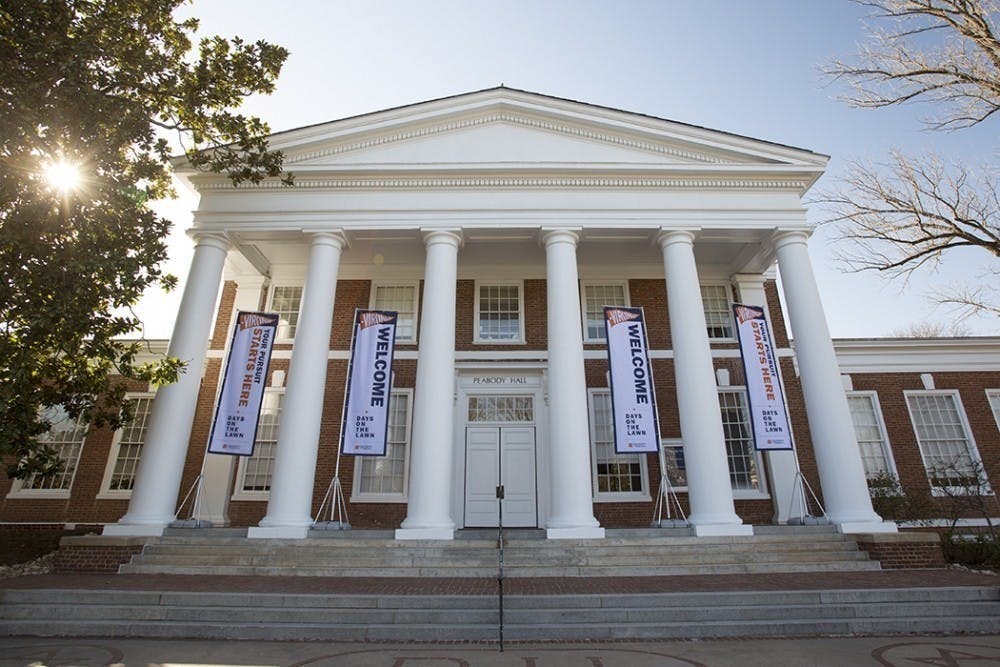Judging by acceptance rates, U.Va. is becoming an increasingly premier university in our world. Two years ago 26.5 percent of students were accepted, last year 23.8 percent of people were accepted and this year 20.5 percent of students were accepted. Given this trend, perhaps within the next two or three years the acceptance rate could even go below 20 percent. If University President Jim Ryan and the Board of Visitors are lucky during their time with the University, they could even drive it to roughly 15 percent, putting the University in the company of such prestigious schools as Georgetown University and Middlebury College. However, there is an argument for keeping an acceptance rate above 20 percent — and I believe it should exceed this rate greatly, such that it reflects the virtue of public colleges and universities.
Elsewhere I’ve discussed President Jim Ryan’s “Good and Great” plan meant to turn U.Va. into the best public university in the country. My view is that the strategic plan is a deferential birdseed to corporations, relatively uninterested in education. Nevertheless, this may not be particularly President Ryan’s fault because he’s simply acting in the class interests of the University. By the metrics laid out in this vision, though, it’s understandable why the highly-inequitable early decision was re-implemented and why the acceptance rate of the University is trending downwards.
There is a somewhat-convincing logic as to why the intensification of exclusiveness is reasonable. To the administration, parents and many students, having a degree from the University is more prestigious than that from another school. The theory is that the piece of paper at the end of your time at U.Va. is more valuable because of the institution it came from. And to an extent, that’s true. The median income of a University graduate at 34 is $71,200, while the median income of a graduate of Radford is $43,500. On the other hand, the median income of someone graduating from Georgetown is $84,400 by age 34.
However, this isn’t an adequate reason to pursue increased exclusiveness when the perception that a university’s eliteness corresponds with higher earnings. While there is an advantage in attending a prestigious school, the outcomes of so-called elite universities are deceptive because they are often overwhelmingly rich to begin with. The median income of a family sending a student to U.Va. is $155,000, Radford $104,600 and Georgetown $229,100. What this shows is not that elite universities hold the key for future success, but rather that having wealth is the key to later financial success. On one hand you could take this fact and dispute it. There are a number of people that have socioeconomic mobility. It’s the result of a good roll of the dice, a few breaks and maybe going to U.Va. even makes the metaphorical dice luckier. On the other hand, the more selective U.Va. is, the more likely it’ll be because richer people go to the school.
The solution to perpetual inequality is one of a full-scale assault on meritocracy and income inequality. A maximum income should be set, unions have to be strengthened, universal healthcare instituted, racial disparities eradicated through systematic investment and wealth transfer — and the list goes on. These are systematic critiques, however — and not even the University’s forefather Thomas Jefferson wielded the power to change these things. And neither does U.Va.
What can be affected by the University is how egregiously it chooses to abide by the structural inequality broader society outlines. The University has relative autonomy over who it accepts, what sort of accomodations it makes and how it uses its resources. A not-so-outlandish future sees U.Va. continue its consolidation of prestige, slowly becoming more and more exclusive, becoming wealthier and boasting amenities for students that attract the supposed best and brightest from around the world. Another future sees U.Va. do more than ever to increase economic diversity on Grounds, providing grants and funding, while using its large endowment to bolster Charlottesville. Education has value, and that value should not be reserved for the richest among us. Until then, I hope the University dispels the notion that U.Va.’s mission is to simply be elite.
Jacob Wartel is an Opinion Columnist for The Cavalier Daily. He can be reached at opinion@cavalierdaily.com.
The opinions expressed in this column are not necessarily those of The Cavalier Daily. Columns represent the views of the authors alone.







